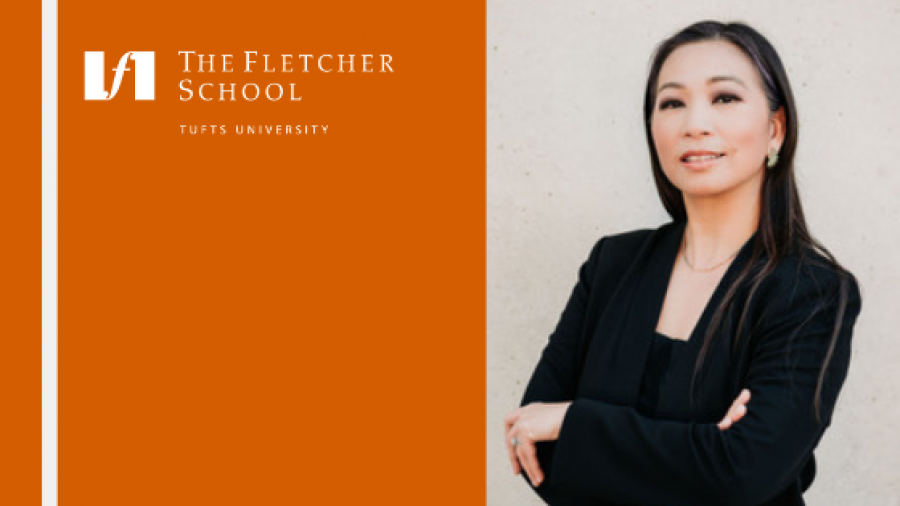Kamusta! My name is Dea Chincuanco and my professional background is in negotiations and business development in international maritime trade and supply chain – this involves mobilizing large heavy industry equipment and plant modules around the world for major infrastructure projects. Almost four years ago, I started my consultancy and broadened my scope to counsel as an expert witness for a maritime law firm, assessing commercial damages involving international disputes. I have a B.A. in Entrepreneurship and Marketing from the University of Houston, with a Minor in Asian studies and international business from Minzu University in Beijing.
What drew you to the Global Business Administration program?
Having worked in an international capacity for the past 17 years, I wanted to remain engaged in a global landscape. I was searching for higher education that would serve my overall personal, professional, and academic growth. After reading about the inaugural GBA program, I immediately knew that the program’s forward thinking, borderless, and multifaceted curriculum provided the global and innovative approach to higher education that I was searching for.
What is one course that you have taken thus far in the GBA program that was instrumental in helping you to achieve your current professional goals?
I have pivoted my career every decade or so and I often thought it to be strange. The leadership development course provided insight that normalized this career progress and even encouraged this type of growth mindset. For mid-career professionals with varied personal interests and a wide array of skillsets, this understanding is essential for a position in higher-level leadership and a focus on work that truly aligns with ones’ values.
What course was your favorite course thus far and why?
The Economic Policy Challenges in Emerging Markets course is an essential course for both undergraduate and graduate internationally focused degree programs. This course, along with The Politics of the Global Economy, offered the essential fundamentals to understand with greater depth the causality of inequalities due to trade-offs that affect people’s lives both locally and across the globe.
I am a 1.5 generation US immigrant and US Citizen since I grew-up partially in Manila until I immigrated to the U.S. This enables me to have viewpoints that distinctly straddle both an emerging country and a progressive one. There has been great focus on DEI initiatives recently, both in the public and private sectors. To truly address the challenges and affect change, it is crucial to have the contextual understanding of the economic and political levers that can effectively and strategically provide sustainable solutions.
What are your biggest passions?
Music, anti-human trafficking efforts, and breaking the glass and bamboo ceilings.
Music because it is a beautiful universal language that binds all people.
Anti-human trafficking efforts because modern day slavery should not be tolerated, especially when it impacts young children who are sexually exploited.
Breaking the glass and bamboo ceilings because until we rid the world of these limitations, we limit our progress and our ability to provide better solutions to some of the world’s biggest problems.
You must start each day (for the rest of your life!) listening to the same song. Which song do you choose and why?
“Lovely Day” by Bill Withers. Musically, the composition is endorphin boosting and it has a record 18 second sustained note in pop music – I love record-breaking feats. Lyrically, it is ever relatable to every human being. Symbolically and metaphorically, it speaks about minor and major challenges faced by oneself and the world, and how our resilience as spirit within body, is equipped to fight obstacles daily…to make our days always quite lovely, if we chose to do so.
Sum up your overall GBA experience in 2-3 sentences.
The GBA program, the administration, the faculty, the staff, the students – they all personify and reflect the intellect, the capability, the hope – to make the world a better place. I am glad to have found a community that continues to focus on these qualities because higher education is only worthwhile when it ultimately challenges us to become more dignified human beings.



Add a Comment
You must be logged in to post a comment